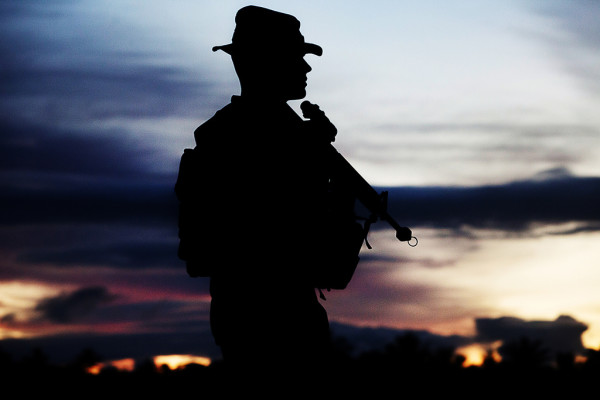Coming To Terms With The End Of Your Military Service
Transitioning from military to civilian life is one of the most difficult things I have ever had to do. One...

Transitioning from military to civilian life is one of the most difficult things I have ever had to do. One minute I was walking down a crowded street in an Iraqi city, rifle at the ready, eyes scanning the people around me for potential threats, and the next, I was walking down a New York City sidewalk trying not to eye the people around me the same way.
As a reservist, I have gone back and forth between the two distinct worlds several times now. Each time involves the same change in mindset and rules of behavior that make it such a challenge. In the military, there are clearly defined rules. There is a clear rank structure. There is a sense of mental discipline instilled in you that focuses your efforts. There is a sense of honor and community being among like-minded individuals, a camaraderie that invigorates you.
When family and friends asked me what it was like to be in the military, I would talk about an old commercial promoting the Marine Corps — the one where blacksmiths fashion a sword that is then wielded by a newly minted Marine. I used to tell people I felt like that sword — something forged and now razor sharp.
But there are drawbacks to this mindset, to immersing oneself in the military culture for long periods of time. To continue with the sword example, a sword cannot be wielded at all times. It is an instrument for battle. When the battle is over, the sword should be put away. So, when the wars are over, when we leave the battlefield, what do we do? How do we put the sword away and function in the civilian world? These are the questions that run through your mind when you’re sitting there at your desk, typing away at your computer in some corporate job. I served my country proudly in a time of war, now what?
It takes the same mental discipline we learned in training and combat to then turn around and re-integrate into the civilian world and workforce. It’s a place that seems adrift, almost too open with possibilities. You ask, how can I translate my military experiences into a successful career and in what industry, what field? What should I do with the rest of my life?
There are a myriad of transition assistance programs as well as excellent veterans organizations that seek to help you find the answers. They all preach the same things to get that good job: put together a strong resume, learn how to translate your military experiences into skills that employers will understand and value, develop your network through professional associations, family and friends, and of course, be patient and persistent as any job search takes time. And this is all sound advice. It is a necessary part of the process. Unfortunately, it fails to address the one thing that can haunt many veterans — after you get the job, after you get the house in the suburbs, the settled family, the SUV, what then? Do you forget about the past life? Do you repress it like some dark truth?
No one seems to want to talk about the inner turmoil veterans face when completely changing their lives from one of training and engaging in the defense of the nation to one where you live your own life, on your own terms, in the pursuit of career, money, and family. It is disorienting, and ultimately, a bit disheartening.
The only way to effectively deal with this turmoil is to meet it head on — you have to make peace with yourself about your decision to leave military life before you actually do it. I have found that to be the hardest aspect of the entire transition process. The connection to fellow Marines and military people, the sense of pride in our accomplishments, the clear purpose and meaning that you feel your life has, all of that creates a distinct pull that is difficult to resist. But, at some point, we all have to transition. As the Pentagon prepares to drawdown manpower numbers to shift into a peacetime force, it is important to recognize that we cannot and should not develop a permanent warrior class of Americans. We should be citizen soldiers (or Marines in my case). We should be well-rounded. We should start families of our own. We pursue our dreams.
While serving in the military can be an incredibly positive experience, it is — as with all of life’s experiences — something that will come to an end for most. Accepting that fact, and the implied consequence that you will have to move on with your life, is the challenge we all must face with the same strength of character and discipline we displayed while serving in the first place.
Eric Navarro is a combat veteran, having served two tours in Iraq. Now a Major in the USMC Reserves, he is also the author of “God Willing: My Wild Ride with the New Iraqi Army.” Follow Eric on Twitter @ericnavarro.